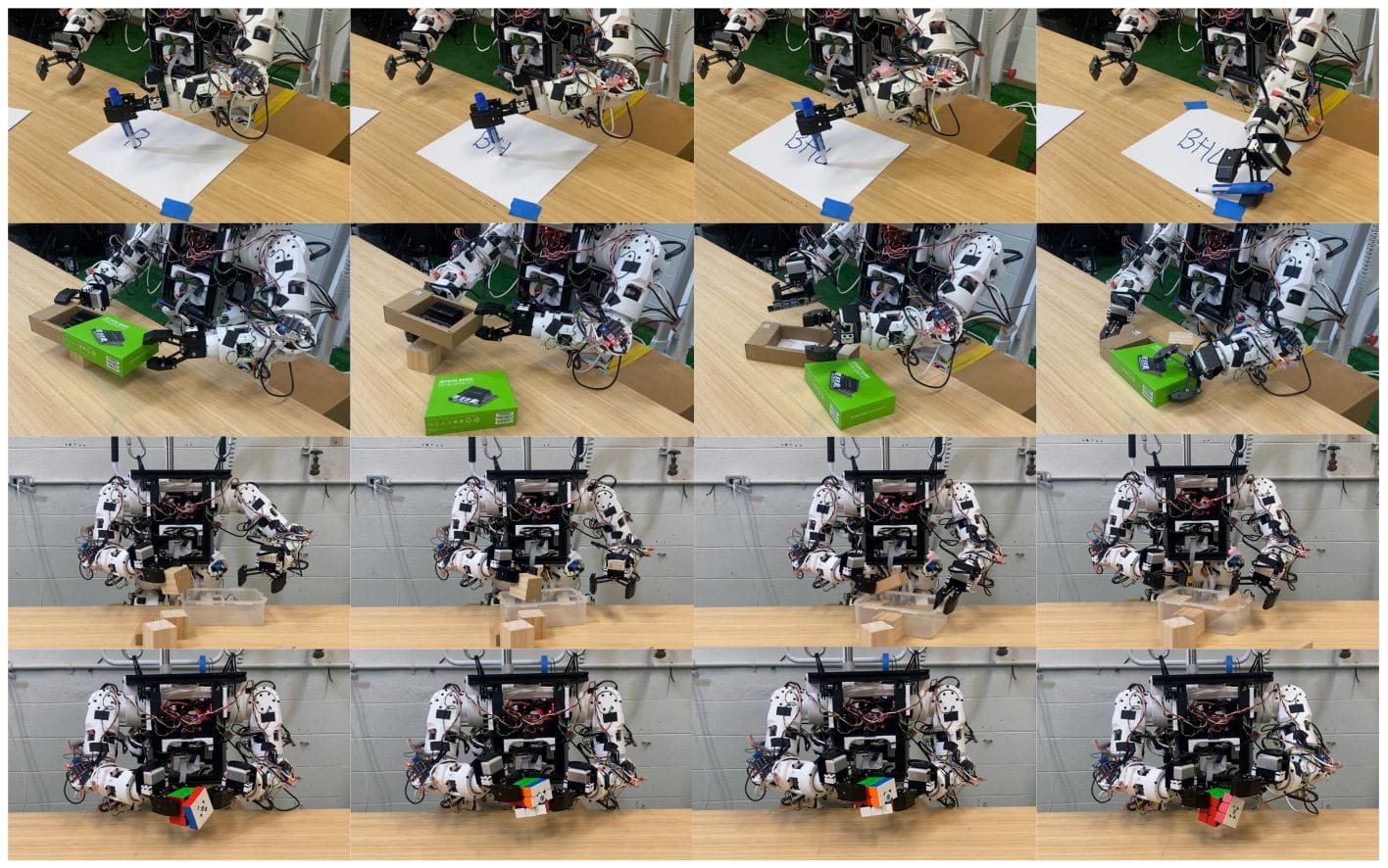
The researchers over at UC Berkeley have developed the Berkeley Humanoid Lite to cater to hobbyists, researchers, and educators. It is an open source humanoid robot that is cheap, 3D printable, and customizable as per one's needs.
The prices for such humanoid robots can range upwards of $100,000, but the Berkeley Humanoid Lite costs just under $5,000. All the components required for assembling the robot can be sourced from popular e-commerce platforms and fabricated using commonly available desktop 3D printers.
The team behind this project consists of UC Berkeley Ph.D. students who designed the robot to be affordable, modular, and open source, democratizing access to advanced humanoid robotics for education and research purposes.
This initiative comes at a time when the humanoid robotics field is often criticized for its lack of transparency, with customization of such robots being largely restricted due to the proprietary nature of most commercial models.
Going open source could be a game changer, as it removes the barriers of proprietary restrictions, allowing anyone to access, modify, and innovate on top of the underlying design.

📝Berkeley Humanoid Lite: Key Specifications

Weighing in at just under 16 kg (~35.27 lbs), the robot consists of a compact onboard computer, an inertial measurement unit (IMU), 3D-printed body parts, and a 6S 4000 mAh LiPo battery.
The robot features a total of 6 degrees of freedom (DOF) per leg and 5 DOF per arm, allowing it to perform a wide range of motions essential for adaptive tasks. These actuated joints enable it to walk, manipulate objects, and interact naturally with its environment.
Another standout innovation in its design is the use of 3D-printed cycloidal gearboxes. These components significantly reduce production costs and simplify both assembly and maintenance.

To demonstrate its adaptability, the team integrated a teleoperation system using SteamVR tracking, enabling intuitive, real-time control regardless of the operator’s position.
As demonstrated above, the Berkeley Humanoid Lite showcases impressive versatility, effectively performing a range of tasks such as walking, packing and unpacking items, solving a Rubik’s Cube, writing, and seamlessly responding to remote control commands.
At the core of its mobility is a reinforcement learning-based locomotion controller. Operating in a bipedal configuration, this controller can interpret user-specified velocity commands and execute stable, efficient walking behaviors.
By sharing all design materials openly, the project creators are inviting everyone to join their mission of accelerating innovation in humanoid robotics through collaboration, accessibility, and hands-on experimentation.
You can also go through the technical paper for the Berkeley Humanoid Lite if you are up for an in-depth read.
The affordable pricing makes me wonder if the time to 'own' robots for household chores is near. And if that happens, how long till we have the 'revolt of machines' at our hands? Maybe I should stop watching sci-fi movies. Your turn to share the opinion in the comments.
- Even the biggest players in the Linux world don't care about desktop Linux users. We do.
- We don't put informational content behind paywall. Your support keeps it open for everyone. Think of it like 'pay it forward'.
- Don't like ads? With the Plus membership, you get an ad-free reading experience.
- When millions of AI-generated content is being published daily, you read and learn from real human Linux users.
- It costs just $2 a month, less than the cost of your favorite burger.
Become a Plus Member today and join over 300 people in supporting our work.











